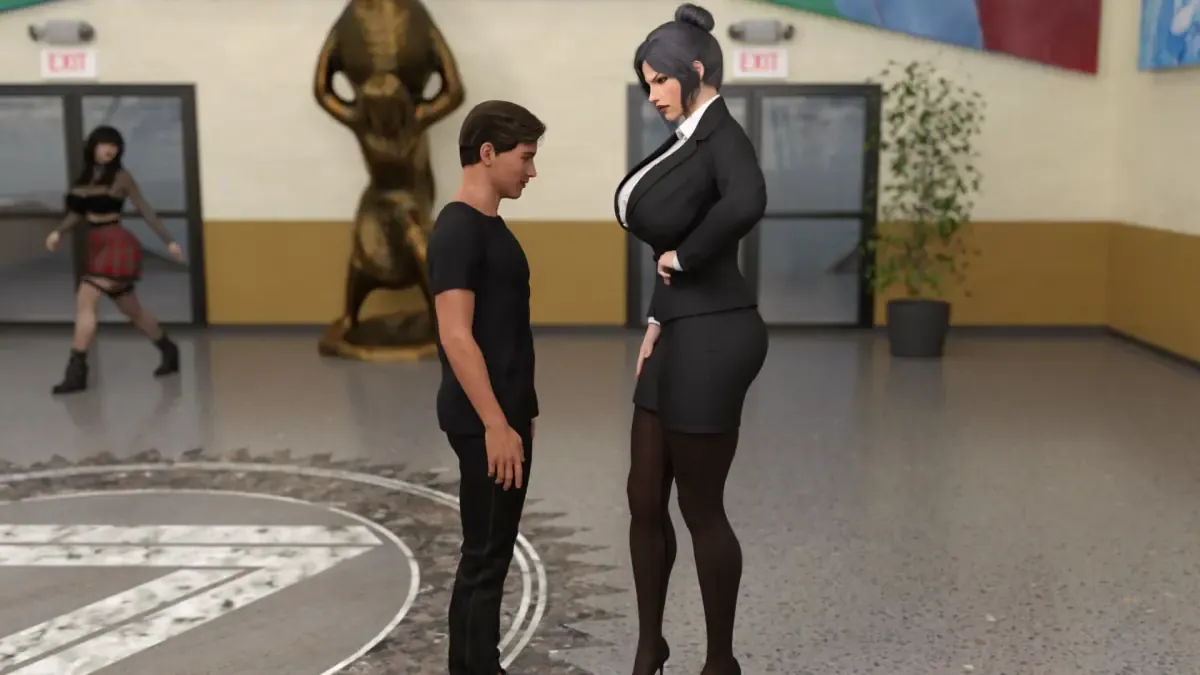
Corrupted Kingdoms
Play Corrupted Kingdoms
Corrupted Kingdoms review
Exploring the Intersection of Narrative Depth and Mature Storytelling
Corrupted Kingdoms has carved a niche in gaming by merging choice-driven fantasy narratives with mature themes. This adult RPG challenges conventions with its intricate world-building and morally complex decisions. We’ll explore how it balances gameplay mechanics with character-driven storytelling, examining why it resonates with players seeking depth beyond its surface content.
Core Gameplay Mechanics and Narrative Design
Branching Storylines and Consequence Systems
Picture this: you’re staring at your screen, hands hovering over the keyboard, as a mob boss demands you choose between burning down a rival’s nightclub or blackmailing their accountant. Your palms sweat. There’s no “good” option—just shades of gray that’ll ripple through your entire playthrough. That’s Corrupted Kingdoms in a nutshell. 🕹️💥
The game’s choice-based RPG mechanics aren’t just window dressing—they’re the engine driving its morally murky world. Every dialogue tree feels like defusing a bomb with scissors made of uncertainty. Take the early game dilemma where you decide whether to protect a struggling club owner or let gangsters take over. Save her, and you gain a loyal ally (plus a sweet revenue stream). Betray her, and you unlock darker story paths with the underworld. There’s no autosave scumming your way out of guilt here—your decisions stick, reshaping alliances, resources, and even which characters survive past Act 2.
Developers didn’t skimp on scale either. With 590+ animations and 4,000+ CGs, every major branch feels uniquely cinematic. Romance a vampire aristocrat? You’ll get bespoke scenes that wouldn’t trigger if you’d sided with the werewolf mafia instead. It’s like Netflix’s “Bandersnatch,” but with way more fangs and betrayal.
💡 Pro tip: Save often, but don’t reload unless you’re ready to face your own terrible judgment.
| System | Impact | Example |
|---|---|---|
| Dialogue choices | Alters faction reputations | Insulting a lord locks you out of his questline |
| Property decisions | Changes income & resources | Upgrading the brothel unlocks blackmail opportunities |
| Combat style | Affects available upgrades | Brutal kills unlock the “Tyrant” skill tree |
Resource Management and Strategic Progression
Let’s talk about that time I accidentally bankrupted my vampire nightclub because I splurged on a golden chandelier instead of hiring bouncers. 🤑➡️😭 Corrupted Kingdoms doesn’t just want you to play a ruler—it makes you feel the weight of every coin and bullet. The property management system is half SimCity, half Game of Thrones.
Take the University: a money pit early on, but invest in “Scholarship Manipulation” upgrades, and soon you’re churning out loyal bureaucrats to rig elections. Or the Nightclub—neglect security, and rival gangs will burn it down by week three. It’s a constant juggle between short-term gains (bribing a judge) and long-term power (building a spy network).
Your power progression tree splits into two paths: Control (manipulating others through diplomacy or fear) and Shatter (literally breaking problems into bloody pieces). Want to mind-control the mayor? That’s Control Level 5. Prefer to dissolve him in acid? Shatter Level 3, baby. But choose wisely—upgrading one path weakens the other, so you can’t be both Machiavelli and the Hulk.
🧠 Fun fact: 70% of players regret their first skill tree purchase. (Source: my own tear-stained notepad.)
Character Relationship Dynamics
Remember that childhood friend who becomes a paranoid warlord if you ignore their texts for too long? Corrupted Kingdoms cranks that drama to 11. 🤝🔥 Character relationship building isn’t about handing out roses—it’s a high-stakes poker game where hearts and daggers are the currency.
Every ally has a “Loyalty” meter hidden beneath their slick dialogue. Help your hacker girlfriend overthrow a corrupt corp, and she’ll gift you insider stock tips. But flirt with her rival, and suddenly your bank accounts get “mysteriously” frozen. Even minor NPCs remember snubs: I once lost a key supplier because I forgot his daughter’s birthday.
The game’s moral decision consequences shine brightest here. Romance someone while secretly plotting their family’s downfall? They’ll confront you in a jaw-dropping cutscene (courtesy of those 4,000+ CGs). Try to play everyone, and you’ll end up alone—or worse, full of arrows.
🌟 Hot take: The best relationships in CK are the ones that blow up spectacularly. Drama = content.
Why This All Matters
Corrupted Kingdoms doesn’t just want your attention—it demands your participation. Every mechanic, from the power progression tree to the property management system, feeds back into the story’s dark heart. You’re not just picking options; you’re architecting a kingdom (and then watching it crumble because you cheaped out on dragon insurance).
So go ahead—make terrible choices. Embrace the chaos. Just don’t come crying when your vampire girlfriend burns down your golden chandelier. 🔥🏰
Corrupted Kingdoms redefines adult gaming through its emphasis on consequential storytelling and mechanical depth. While its mature content draws initial attention, the game’s lasting appeal lies in how it integrates player agency across both narrative and strategic systems. For players seeking an RPG that respects their intelligence while delivering on production values, it’s worth experiencing firsthand (with appropriate age verification).




